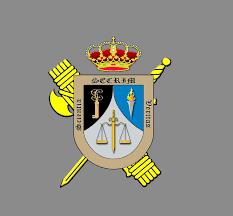Legal and the Law in Spain
LEGAL REQUIREMENTS FOR AN ADVERSE POSSESSION CLAIM TO REAL ESTATE PROPERTY IN SPAIN
Dear Readers and friends, We have recently dealt with a new case related to adverse possession. Adverse possession is one of the several legal ways to acquire title in Spain. (Purchase, inheritance, donation, etc) However, considering the few occasions where a Solicitor can encounter cases of this peculiar nature, we would like to share our […]
Dear Readers and friends,
We have recently dealt with a new case related to adverse possession.
Adverse possession is one of the several legal ways to acquire title in Spain. (Purchase, inheritance, donation, etc) However, considering the few occasions where a Solicitor can encounter cases of this peculiar nature, we would like to share our experience with you. This is the initial enquiry received from our client;
“Hi, I am thinking about initiating legal proceedings but need advice and a quote. I have been using a house in the Valencia Region as a holiday home for some time (we are not resident in Spain). I signed a private purchase agreement with the original owner in 2008, but he passed away before we could transfer the deeds into my name at the Notary. His only heir is his son who lives in the UK but has never wanted the property and has never inherited. Is it possible to change the Deeds into my name under the law of adverse Possession. We pay all the bills and taxes on the property and have redecorated it. The son will not oppose any move, indeed he has never been outside the Uk. Can you please advise me and quote for the full proceeds”
OUR ADVICE:
In the first place, the acquisition of land under the doctrine of adverse possession is recognized in the Spanish civil jurisdiction. This means, that under certain restricted conditions, a trespasser might come onto your property, occupy it, and gain legal ownership of it after a period of time. The legal term for this is “adverse possession.”
The acquisition of land under the doctrine of adverse possession is expressly recognized mainly in the following articles of the Spanish civil Code;
“.- Article 1,940. Ordinary prescription of ownership and remaining rights in rem shall require possession of the thing in good faith and pursuant to just title for the period provided in the law.
.- Article 1,941. Possession must be in the capacity of owner, and must be public, peaceful and uninterrupted
.- Article 1,957. Ownership and other rights in rem over immovable property prescribe by ten years’ possession among present persons, and twenty among absent persons, (i.e living in a foreign country), in good faith and with just title.
.- Article 1,958. For the purposes of prescription, foreign or overseas residents are deemed to be absent. If part of the time the owner should have been present and another part absent, two years of absence shall be deemed one year in order to complete the ten years of presence required. Absences for less than a whole continuous year shall not be taken into account for the calculation.
.- Article 1,959. Ownership and other rights in rem over immovable property also prescribe as a result of thirty years of uninterrupted possession, without requiring any title or good faith, and without distinction between persons present and absent, save for the exception provided in article 539”.
Therefore, in a nutshell, to qualify as adverse possession, the following twofold criteria must be met:
- Possession must be in the capacity of owner and it must be public, peaceful and uninterrupted. This means that the trespasser ought to possess the property physically and exclusively (possession cannot be shared with strangers or the registral owner) and subsequently treat it as if he or she were the sole owner.
Proof of possession can also be established by documenting the trespasser’s efforts to maintain and make improvements to the property. (For example, by paying the local rate IBI to the SUMA, utility bills, etc)
- The trespasser must also possess the property without interruption for a certain period of time. (in other words, the trespasser cannot give up use of the property, return to it later, and try to count the time that the property was abandoned as part of the “continuous” possession time period). The limitation period will vary according to the following scenarios:
- a) With good faith and just title, 10 years if the owner lives within the Spanish jurisdiction.
- b) With good faith and just title, 20 years if the owner is absent. (i.e the owner lives abroad)
- c) Without good faith and just title, regardless of whether the owner lives nearby or is absent, 30 years.
As you can see, where there has been good faith, prescriptive title may be acquired just after ten or twenty years. However, where good faith cannot be proved, the limitation period will be extended to thirty years.
(For clarification purposes, “just title” means that the process of handing over the property has been done in a rightful and legitimate manner, i.e a squatter who illegally breaks in a property could never have just title).
Regarding our client’s case, our advice has been to sign before the Spanish Notary an AFFIDAVIT STATEMENT, (“acta de manifestaciones” in Spanish), enclosing all the necessary documents and written evidence, aimed to prove his good faith, as well as to determine the starting date (dies “a quo”) of his prescriptive right, such as the title, (the purchase agreement), and the rest of all the banking receipts proving the yearly payment of all the IBI receipts since the original registral owner died, utility bills, etc
This affidavit will be very helpful in order to prove to the Judge in due course his title, good faith and proof of uninterrupted possession. Subsequently, he will be able to initiate the legal proceedings aimed to register the property into his name in 20 years instead of having to wait 30 years.
The only potential risk for our client is that in the meantime, family relatives of the deceased previous owner could decide one day to deal with the inheritance in order to claim the full ownership of the property before the 20 years have elapsed.
We hope this information is useful and should you have any additional question about this or other legal matter, please visit any of our two websites: www.ricorabogados.com or www.englishsolicitorinspain.com
Remember that you can also follow us on Facebook (https://www.facebook.com/ricorabogados),
Linkdin and our google business page: (https://plus.google.com/…/10169…/101699650134478147323/posts)
Alternatively, you can also contact us by e-mail at ricorsolicitors@yahoo.co.uk and we will reply back to you as matter of urgency.
Thank you very much for your attention and permanent support and we look forward to helping you!
Mr Oscar Ricor “NON-PRACTISING ENGLISH SOLICITOR IN ENGLAND AND WALES”, under the “Solicitors Regulation Authority” (SRA) SRA number 519196 and practicing Spanish Solicitor




















